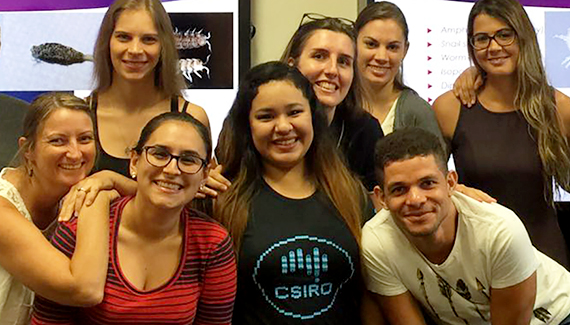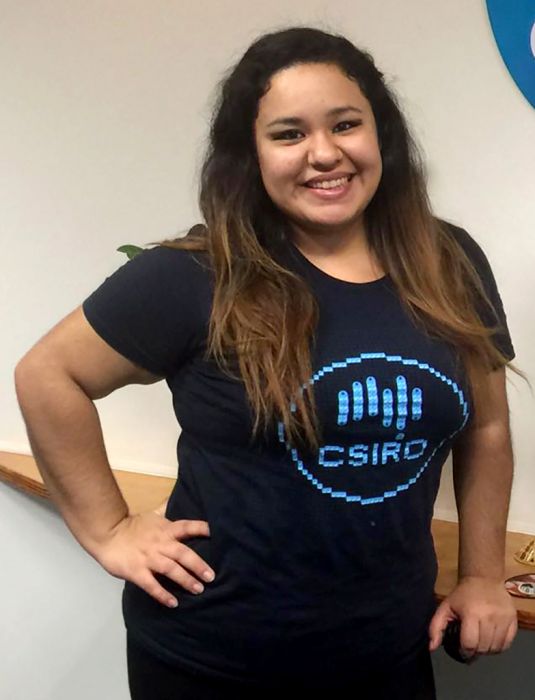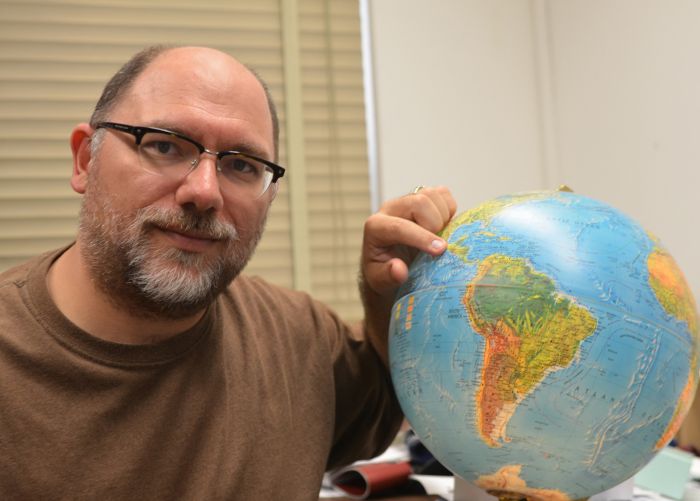
Alexandra Gutierrez didn’t think twice before giving up her apartment in Wilmington to travel to “beautiful” Australia. After all, how could the California State University, Dominguez Hills (CSUDH) biology student resist trudging through rain and mud, and climbing steep hills in the summer heat to study ants.

Gutierrez, along with fellow CSUDH biology students Maria Salazar and Jacky Silva, worked full time in Australia on climate change science and biodiversity research as participants in the National Science Foundation’s (NSF) International Research Experiences for Students (IRES) program. Funded by a $249,922 NSF grant that was awarded to CSUDH associate professor of biology Terry McGlynn in 2013, a total of 12 CSUDH undergraduate and graduate science majors have conducted research in Australia.
Gutierrez first arrived in Australia in January 2016–the middle of the country’s summer–to begin her research on Linepithema humile, also known as Argentine Ants, on Australia’s Norfolk Island to learn how the invasive species effects the environment, and to assist in the effort to safely eradicate them from the island.
“We took samples from around the island by digging five inches into the ground to collect bags full of soil, leaves, and twigs,” said Gutierrez. “We were also applying a treatment [hydrogel beads soaked in a sucrose, a natural sugar] to the infested areas to eradicate the ants, which consisted of spreading the beads by hand from buckets. We had to walk down very slippery hillsides, and traverse large parcels of land.”
The students carried out their research in partnership with the CSIRO Tropical Ecosystems Research Centre (TERC) in Australia’s Northern Territory, which is headquartered in the City of Darwin. Their overall focus was on how fire structures the landscape–maintaining savannahs instead of woodlands–and how it affects carbon sequestration in the soil, and maintains biodiversity.
After four weeks, Gutierrez left Norfolk Island for Darwin to work in the TERC laboratory and study the samples she collected on the island.
“In the lab, I sorted through the samples to identify all the ants and invertebrates I collected after each treatment process,” said Gutierrez. “I worked mostly independently because sorting through these samples takes quite some time.”
Gutierrez reported to and works directly with Ben Hoffman, a principal research scientist and invasive ant expert at CSIRO TERC. She stayed in a house located at the center, which also houses students from such countries as France and Iran, and other parts of Australia, according to McGlynn.

“Every student has his or her own individual project. They have worked in such places as the Tiwi Islands, on Aboriginal lands, and in the Kakadu National Park. Our students also participate in other CISRO projects, basically functioning as CISRO entomologists,” said McGlynn, who since 1996 has been taking students on summer research trips to Costa Rica through another NSF-funded IRES program.
Now back at CSUDH, Gutierrez reflects on how the program has enabled her to “fulfill a dream;” to travel to Australia while expanding her knowledge in a new environment–“something that not many students will have the opportunity to experience.”
“Before going to Australia, I could not have imagined the amount of effort that goes into researching ants, and how important organizations like CSIRO are,” she said. “While I did know that all species, big and small, play a role in the ecosystem, the role that ants play is actually quite huge. We depend on them more than we may ever really know.”